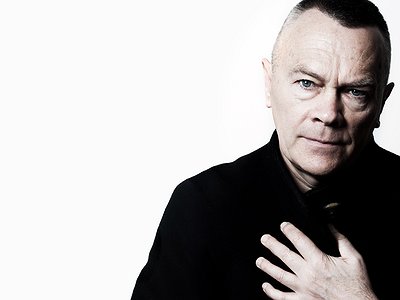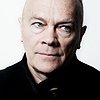Part 2
With more and more musicians creating than ever and more and more of these creations being released, what does this mean for you as an artist in terms of originality? What are some of the areas where you currently see the greatest potential for originality and who are some of the artists and communities that you find inspiring in this regard?
Nothing is completely new so it’s important to accept that. Don’t learn too much, make mistakes, and be honest. We are all looking for something no-one else has ever done and we all fail. I love new scenes started by young people who don’t know the rules. Grime was one of the most exciting scenes for decades because of that. It was so much more than punk because they didn’t seek the big record deal – they just wanted respect from their peers. At the moment the folk scene is very exciting – the most open-minded musicians seem to have found a home there.
How strictly do you separate improvising and composing?
I don’t. Improvising is spontaneous composition. The only issue is that if we want to make something to be repeatedly listened to, we want and should cut out the shit bits. Of course a record of untouched improv is perfectly valid but they rarely warrant repeated listening.
How do you see the relationship between sound, space and composition and what are some of your strategies and approaches of working with them?
Gosh – to come back to Cage. Silence, space, sound are all sonic elements and one of the biggest lessons of 4.33 is that what we define as silence is almost never that – it’s usually just a collection of quiet foreground and background sounds.
My studio backs onto one of busiest train lines in the world and though I have some soundproofing it certainly doesn’t exclude all the trains. Many years ago I was working with the production genius David Cunningham (Flying Lizards, Michael Nyman etc) and bemoaning the constant leakage from outside of the trains. He taught me not to fight it but to use it and that has been my approach every since. All of my tracks have a bed of discreet sonics, which may be almost unheard but create, for me at least, the canvas onto which the more foreground musical and sonic elements are placed. I’ve been in an anechoic chamber and I didn’t like it one bit. The music we make is never free of the cultural baggage we bring to it and part of that is the sonic ecology that we each inhabit.
What's your perspective on the relationship between music and other forms of art – painting, video art and cinema, for example – and for you and your work, how does music relate to other senses than hearing alone?
I have absolutely no talent for visual art. I can’t even draw a straight line. However I like to think that I take a painterly or even sculptural approach to creating and producing and also that the results might create pictures for the listeners. I work quite often with a brilliant projection artist called Jaime Rucksack who is amazing at translating my sounds into video wonders.
What's your view on the role and function of music as well as the (e.g. political/social/creative) tasks of artists today - and how do you try to meet these goals in your work?
My “day job” is making music with young people with disabilities and young offenders. Giving a voice to the voiceless is a political act. Music is the most abstract and expressive of activities; its functions include communication, interaction, mood enhancement, medicine, and therapy. There is no dividing line in my practice and no difference in approach.
Listening is also an active, rather than just a passive process. How do you see the role of the listener in the musical communication process?
When we play a live gig the music sounds different – even recorded music sounds different. The listener brings context and meaning that is beyond the composer. Sometimes I only understand a track when I play it live – the subtle interaction is something very hard to put into words but very palpable in the moment.
Reaching audiences usually involves reaching out to the press and possibly working with a PR company. What's your perspective on the promo system? In which way do music journalism and PR companies change the way music is perceived by the public?
Hmm – I’m ambivalent about this. To sell records people need to know about them. It’s a big and complex job to do this so the use of a professional is really helpful. I have a very good pr and no criticism is implied but frankly the cost of pr is completely disproportionate to the cost of making an album. There’s also too much politics and sub-payola going on eg take an ad and you have a better chance of a review, live in Tierra del Fuego and your music must be better than if you live in London. No I’m not bitter…
Do you have a musical vision that you haven't been able to realise for technical or financial reasons – or an idea of what music itself could be beyond its current form?
For the former I guess I’d like to make the next album in a big chunk of time without having to fit it in around all my other fabulous work so that I could completely immerse myself for a month. As for the future of music. New stuff comes long all the time, kids come along to break the rules, new technology lets us do new things with sound. I’m not really into the idea of interactive media as product as I believe an artist has a right to a vision but I’m sure new methods of absorbing music will come along.
Visit the website at www.gagarin.org.uk






